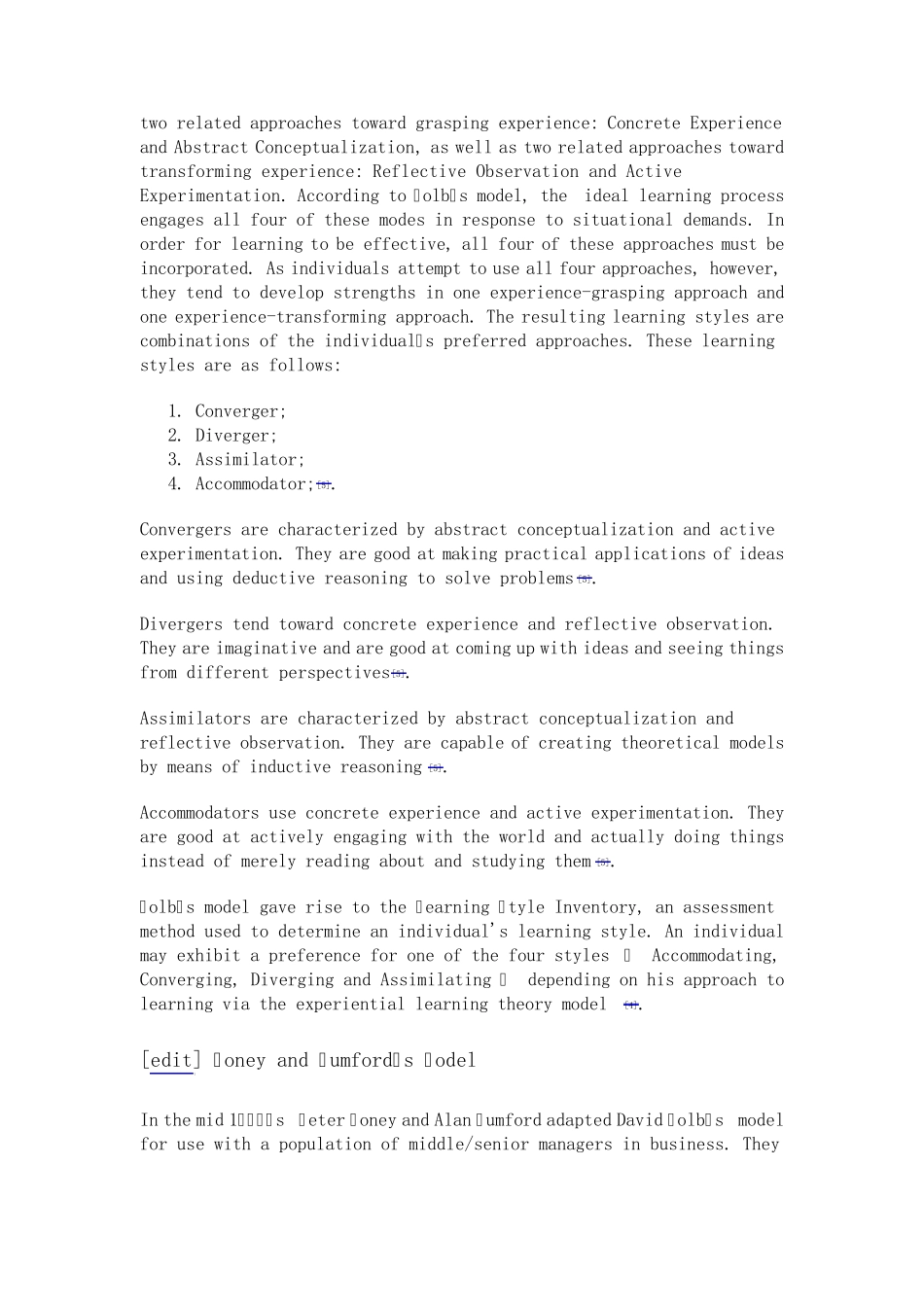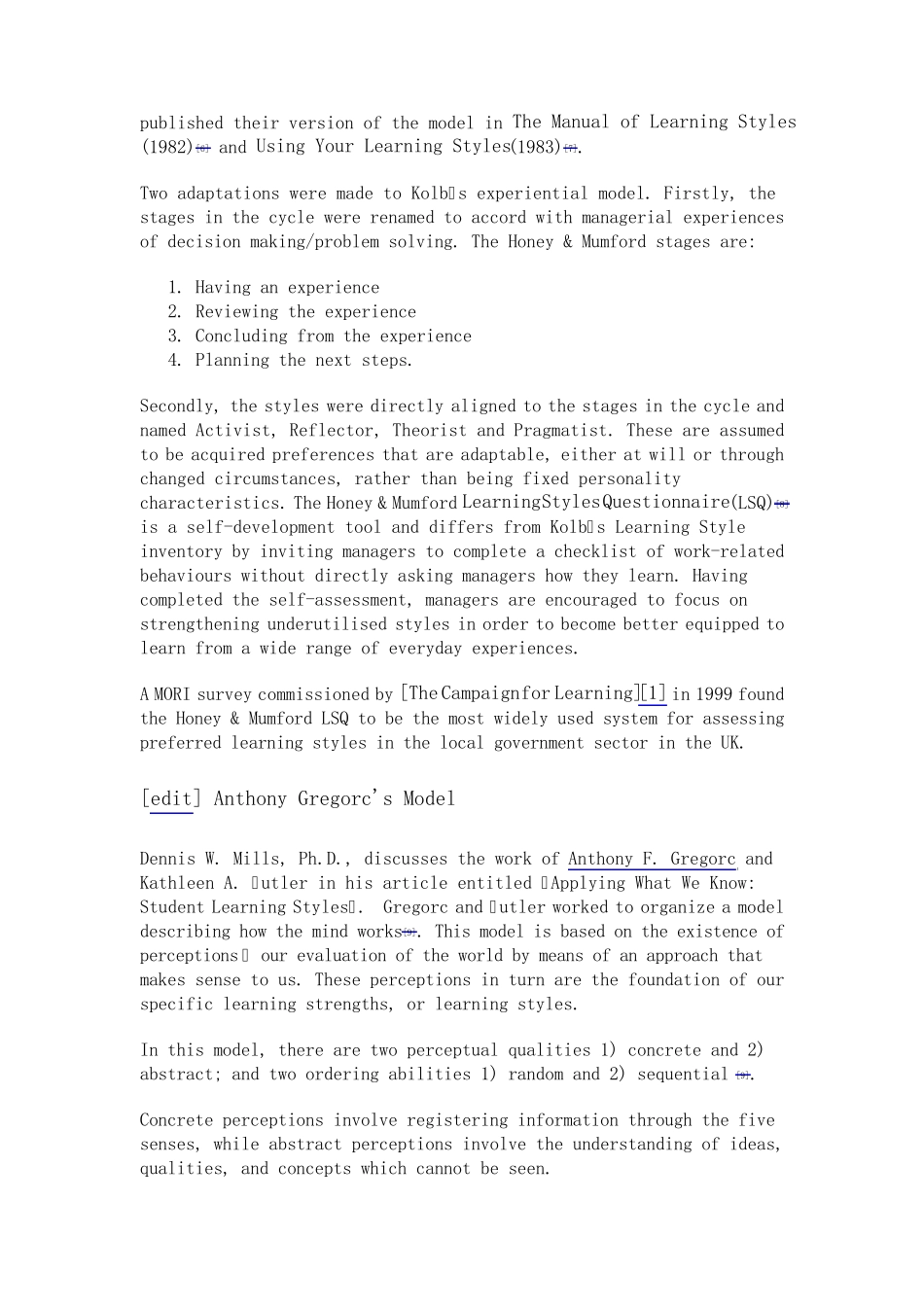Wikipedia is there when you need it — now it needs you. Donate Now [Hide] [Show] Wikipedia Forever Our shared knowledge. Our shared treasure. Help us protect it. [Show] Wikipedia Forever Our shared knowledge. Our shared treasure. Help us protect it. Learning styles From Wikipedia, the free encyclopedia Jump to: navigation, search Learning styles are various approaches or ways of learning[1]. They involve educating methods, particular to an individual, that are presumed to allow that individual to learn best. It is commonly believed that most people favor some particular method of interacting with, taking in, and processing stimuli or information.[citation needed] Based on this concept, the idea of individualized "learning styles" originated in the 1970s, and has gained popularity in recent years.[citation needed] It has been proposed that teachers should assess the learning styles of their students and adapt their classroom methods to best fit each student's learning style[2][3]. The alleged basis for these proposals has been extensively criticized.[citation needed] Models [edit] David Kolb's Model The David Kolb styles model is based on the Experiential Learning Theory, as explained in David A. Kolb's book Experiential Learning: Experience as the source of learning and development (1984)[4]. The ELT model outlines two related approaches toward grasping experience: Concrete Experience and Abstract Conceptualization, as well as two related approaches toward transforming experience: Reflective Observation and Active Experimentation. According to Kolb’s model, the ideal learning process engages all four of these modes in response to situational demands. In order for learning to be effective, all four of these appro...


